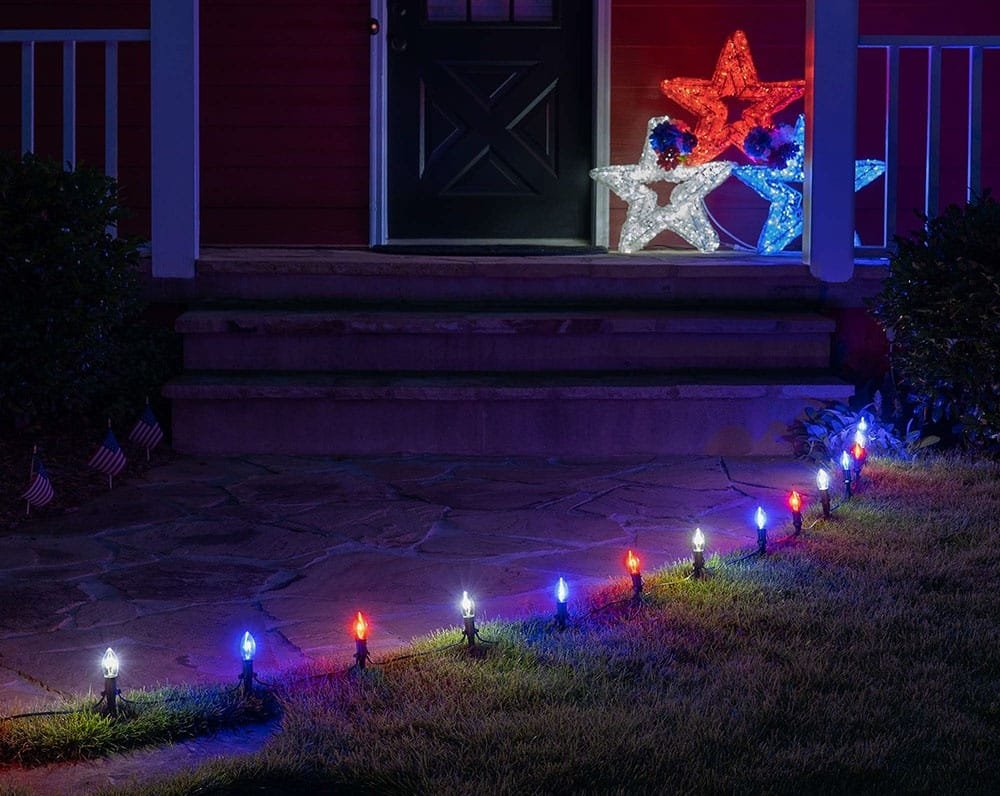Solar lights are a popular choice for outdoor lighting, but they often stop working unexpectedly. If you’ve ever found your garden lights flickering or completely out of order, you’re not alone. This article explores the most common causes behind the sudden failure of solar lights and how you can fix them to extend their lifespan.

Several factors can cause solar lights to stop working quickly, including battery deterioration, damaged solar panels, or faulty wiring connections. Regular maintenance and proper installation can prevent many of these issues. Solar lights depend on sunlight to recharge, and over time, the batteries or panels can wear out, reducing their performance. Ensuring the correct setup and maintaining clean panels will help maximize their lifespan and reliability.
Several factors can cause solar lights to stop working quickly, including battery deterioration, damaged solar panels, or faulty wiring connections. Regular maintenance and proper installation can prevent many of these issues.
Why Do My Solar Lights Turn Off So Quickly?
If your solar light’s sunlight detection sensor is overly sensitive, it might mistakenly turn off even when you want it to shine. This can also happen if there are nearby light sources that make the environment overly bright at night. Solar lights use sensors to detect light levels, and if the sensor detects even minimal light, it may switch the light off prematurely. To resolve this issue, try relocating the lights further from streetlights or other sources of artificial light.
How to Fix Outdoor Solar Lights That Stop Working?
The first step in fixing your solar lights is checking the battery. A drained or damaged battery is the most common cause of malfunctioning lights. If the battery is corroded or worn out, replacing it is often a simple and effective solution. Additionally, ensure that the battery compartment is clean and free from debris.
Next, inspect the solar panel. Dirt, dust, and leaves can accumulate on the panel, blocking sunlight from reaching the solar cells. Clean the panel with a soft cloth or sponge, using mild soap and water if necessary. After cleaning, make sure the solar panel is positioned in an area that receives direct sunlight for at least 6 hours a day.
Why Are My Solar Lights Not Holding Charge?
Over time, batteries lose their ability to hold a charge. This is especially true if your solar lights are exposed to extreme temperatures or have been left in place for too long. If your solar lights don’t seem to hold a charge, it’s a sign that the batteries need replacement.
Signs of battery failure include reduced runtime, even on sunny days, or the lights dimming shortly after sunset. If you have rechargeable batteries in your solar lights, replacing them with high-quality NiMH (Nickel-Metal Hydride) batteries can often restore performance.
How Can I Make My Solar Lights Last Longer?
To extend the battery life of your solar lights, make sure they receive direct sunlight for at least 6 hours a day. This ensures that the battery fully charges during the day, providing optimal light output at night.
Additionally, regular cleaning of the solar panels is essential. Dirt, grime, and leaves can obstruct sunlight and prevent the panels from working efficiently. Clean the panels with a soft cloth every few months to maximize energy absorption.
Finally, store your solar lights in a cool, dry place during the winter months or extended periods of darkness. This helps preserve the battery and prevents moisture damage.
Why Do Solar Lights Stop Working in Winter?
Solar lights depend on sunlight for their power, so they naturally perform worse in the winter when there is less sunlight. Shorter days and cloudy weather mean your lights won’t charge as efficiently. As a result, your solar lights may not provide as much light during the winter months or may stop working altogether.
To keep your lights working during winter, make sure they’re positioned in a spot that gets as much sunlight as possible. If you live in an area with long, harsh winters, consider using solar lights with higher-capacity batteries or a backup power source.
Why Are My Brand New Solar Lights Not Working?
It can be frustrating when your brand new solar lights don’t work straight out of the box. The most common reason for this is that the battery needs to be installed properly or fully charged. Sometimes the battery comes with a protective pull tab to prevent accidental drainage during shipping. If your new solar lights are not working, first check if you need to remove this tab.
Next, ensure the solar panel is receiving enough sunlight. If the panel is covered by debris or is in a shaded area, the light won’t charge properly. Try moving the solar light to a sunnier spot and give it a full day of exposure before testing it again.
Solar Lights Not Working After Rain – What to Do?
Rain can affect solar lights in several ways. If the lights are exposed to moisture for prolonged periods, the battery compartment or electrical components may become damaged. Additionally, water can cause corrosion of the wiring, leading to malfunctions.
To prevent this, ensure that the lights are designed to be waterproof. Most solar lights are rated for outdoor use and are water-resistant, but prolonged exposure to rain can still cause issues. If your solar lights are not working after rain, check for water damage inside the battery compartment and dry it thoroughly. If corrosion is present, clean it with a small brush or cloth.
Summary
Solar lights are a great choice for your garden, but they can be frustrating when they stop working. By identifying and fixing common issues such as battery failure, dirty panels, and improper installation, you can extend the life of your solar lights. Regular care ensures long-lasting performance.
